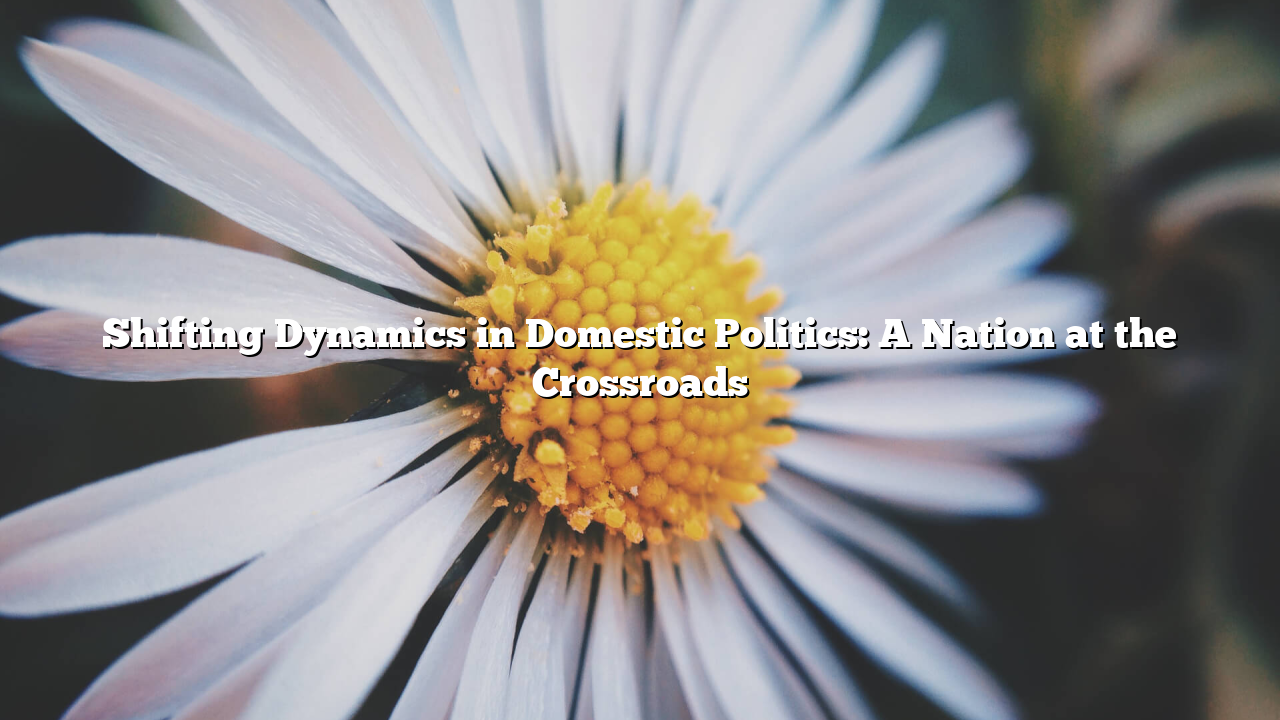In recent years, the domestic political landscape of many nations has undergone rapid and profound transformations. These changes have been driven by a combination of economic pressures, shifting public expectations, and the increasing influence of digital media. As citizens become more engaged—and more vocal—about governance, political actors are being forced to adapt to an environment Pattimura4d where accountability, transparency, and responsiveness are no longer optional but essential.
One of the most visible shifts has been the rise of grassroots political movements. Traditionally, political power was concentrated in established parties, with hierarchical structures that often left little room for direct citizen participation. However, advances in technology and the widespread use of social media have allowed ordinary people to organize, mobilize, and amplify their voices with unprecedented speed. As a result, movements that were once considered fringe or local can now shape national debates and influence policy decisions.
The role of the younger generation in shaping domestic politics cannot be overstated. Millennials and Generation Z voters, many of whom are entering the workforce and experiencing the challenges of economic uncertainty, are demanding policies that address social justice, environmental sustainability, and inclusive governance. They are less tied to traditional party loyalties and more inclined to support candidates and platforms that align with their values, regardless of political labels. This shift has pushed political parties to rethink their messaging, strategies, and candidate selection.
Economic challenges remain at the forefront of domestic political discourse. Rising costs of living, wage stagnation, and regional inequality have put pressure on policymakers to craft solutions that balance fiscal responsibility with social welfare. In many cases, economic discontent has fueled political polarization, with different factions advocating sharply contrasting visions of the country’s future. Some argue for increased government intervention and investment in public services, while others call for deregulation, tax cuts, and market-driven reforms.
The media landscape has also played a significant role in shaping public perceptions and political narratives. While traditional news outlets continue to hold influence, alternative media and online platforms have diversified the flow of information—sometimes for the better, but often with challenges. The spread of misinformation and the emergence of echo chambers have complicated the public’s ability to form fact-based opinions. This has prompted calls for stronger media literacy initiatives and more robust fact-checking mechanisms to safeguard democratic discourse.
Political leadership is under increasing scrutiny in this climate of heightened awareness. Citizens expect leaders to act with integrity, communicate openly, and deliver on campaign promises. Scandals, corruption allegations, or policy failures can trigger swift backlash and erode public trust, sometimes within days. As a result, successful political leaders today must not only govern effectively but also maintain a constant and credible dialogue with their constituents.
Another notable trend in domestic politics is the growing emphasis on decentralization and local governance. In many countries, local governments are gaining more authority and resources to address community-specific needs. This shift reflects a recognition that one-size-fits-all national policies may not effectively address the diverse challenges faced by different regions. By empowering local administrations, governments can foster more responsive and tailored solutions.
Despite these changes, domestic politics remains a deeply contested arena where competing interests, ideologies, and visions for the future clash. Political polarization, while energizing for some, has also led to legislative gridlock and an erosion of civil discourse. Bridging these divides will require political actors to engage in more genuine dialogue, seek compromise, and focus on long-term national interests rather than short-term electoral gains.
In conclusion, the evolving dynamics of domestic politics present both opportunities and challenges. Greater citizen engagement, technological innovation, and shifting demographic priorities offer a chance to make governance more inclusive and responsive. At the same time, polarization, economic inequality, and the spread of misinformation threaten to undermine democratic stability. The path forward will depend on the ability of political leaders, institutions, and citizens to navigate these tensions with vision, resilience, and a shared commitment to the common good.
